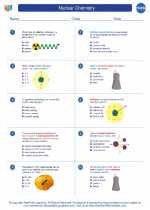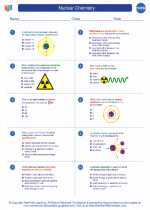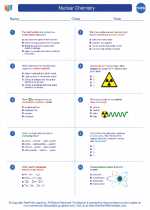Nutrients
Nutrients are substances that provide nourishment essential for the maintenance of life and for growth. They are the building blocks of our body and are essential for the proper functioning of various physiological processes.
Types of Nutrients
There are six main types of nutrients:
- Carbohydrates: These are the body's main source of energy. They are found in foods such as bread, pasta, and fruits.
- Proteins: Proteins are essential for growth, repair, and maintenance of body tissues. Foods rich in protein include meat, fish, nuts, and legumes.
- Fats: Fats are a concentrated source of energy and are important for insulation and protection of organs. They are found in oils, butter, and nuts.
- Vitamins: These are essential for various metabolic processes in the body. They can be obtained from a variety of fruits, vegetables, and fortified foods.
- Minerals: Minerals are important for building strong bones and teeth, as well as for various physiological functions. They can be found in foods such as dairy products, leafy greens, and nuts.
- Water: Water is essential for hydration, regulation of body temperature, and transportation of nutrients and waste products in the body. It can be obtained from drinking water and consuming water-rich fruits and vegetables.
Functions of Nutrients
The nutrients in our diet have various important functions in the body:
- Energy production: Carbohydrates, fats, and proteins are essential for the production of energy needed for bodily functions and physical activity.
- Growth and repair: Proteins, vitamins, and minerals are important for the growth and repair of body tissues.
- Regulation of bodily processes: Vitamins and minerals play a crucial role in regulating various physiological processes such as metabolism, immune function, and nerve signaling.
- Hydration: Water is essential for maintaining proper hydration and for various biochemical reactions in the body.
Recommended Intake
The recommended intake of nutrients varies based on age, gender, and activity level. It is important to consume a balanced diet that includes a variety of nutrient-rich foods to meet these recommendations.
Conclusion
Understanding the different types and functions of nutrients is crucial for maintaining a healthy and balanced diet. By consuming a variety of nutrient-rich foods, one can ensure adequate intake of essential nutrients for overall health and well-being.
[Nutrients] Related Worksheets and Study Guides:
.◂Chemistry Worksheets and Study Guides High School. Nuclear Chemistry

 Worksheet/Answer key
Worksheet/Answer key
 Worksheet/Answer key
Worksheet/Answer key
